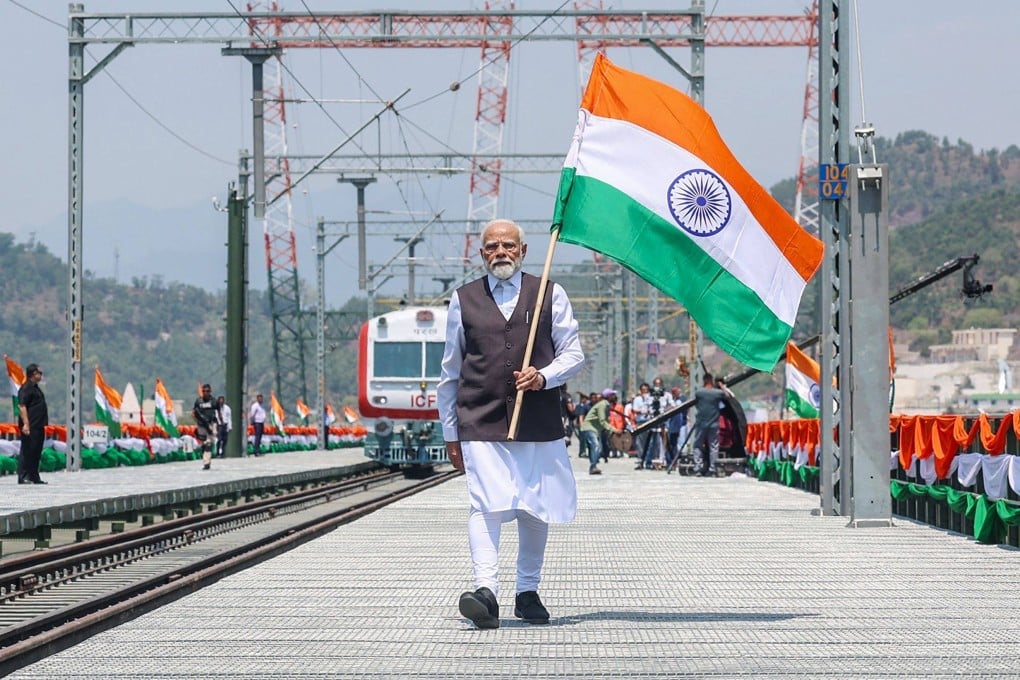
The world’s highest railway bridge, the Chenab Bridge, has officially opened in Indian-administered Kashmir, marking the completion of a decades-long infrastructure project that connects the disputed region to the Indian mainland by rail for the first time. The bridge, which towers 359 meters above the Chenab River—surpassing the height of the Eiffel Tower—forms a crucial part of the Udhampur-Srinagar-Baramulla Rail Link, a 272-kilometer line that traverses hazardous Himalayan terrain through 36 tunnels and 943 bridges.
Indian Prime Minister Narendra Modi presided over the inauguration, highlighting the project as a feat of engineering and a milestone for connectivity in the region. However, the opening comes at a time of heightened tension and scrutiny over India’s policies and actions in Kashmir, a territory claimed by India, Pakistan, and China, and one of the most militarized zones in the world.
Human Rights Violations Cast a Shadow
While the Indian government touts the railway as a symbol of progress and integration, critics and international human rights organizations continue to raise serious concerns about the ongoing situation in Kashmir. Since the revocation of the region’s special autonomous status in 2019, Indian authorities have imposed sweeping restrictions on movement, communication, and political activity, accompanied by an increased military presence. These measures have been widely condemned as violations of the rights to representation, participation, and self-determination guaranteed under both Indian and international law.
The region has a long history of human rights abuses, including mass killings, enforced disappearances, torture, sexual violence, and political repression, most often attributed to Indian security forces operating with impunity. Reports by Human Rights Watch, Amnesty International, and the United Nations have documented these abuses, noting the lack of accountability and ongoing suppression of freedoms of expression and assembly. The Indian government, for its part, has routinely dismissed these allegations as unfounded and insists that its actions are necessary for security and development.
Strategic and Political Motives
The strategic significance of the new railway link cannot be overlooked. The infrastructure not only facilitates civilian and economic movement but also enables swifter deployment of military personnel and equipment in a region frequently marked by conflict, both internal and cross-border. The timing of the inauguration, following a recent surge in violence and a deadly attack on tourists, has further fueled concerns that infrastructure development is being prioritized over addressing the root causes of unrest and the legitimate political aspirations of the Kashmiri people.
International Response
The United Nations and international legal bodies have repeatedly called on India to respect the rights of Kashmiris, including their right to self-determination, and to end the cycle of violence and repression. Despite these calls, the Indian government continues to assert its sovereignty over the region and has resisted external criticism, labeling it as interference in internal affairs.
The opening of the Chenab Bridge and the broader rail link is a significant development in the region’s history, promising new economic and logistical opportunities. However, for many in Kashmir and the international community, these advances are overshadowed by persistent human rights violations and the unresolved political status of the territory. Until these fundamental issues are addressed, infrastructure projects alone are unlikely to bring lasting peace or justice to Kashmir
Comments
Post a Comment